
Find A Professional
More Items From Ergsy search
-

Who regulates the performance and compliance of UK water companies?
Relevance: 100%
-

What is the role of a water regulator in my claim?
Relevance: 95%
-

Which body is responsible for enforcing refunds by UK water companies?
Relevance: 69%
-
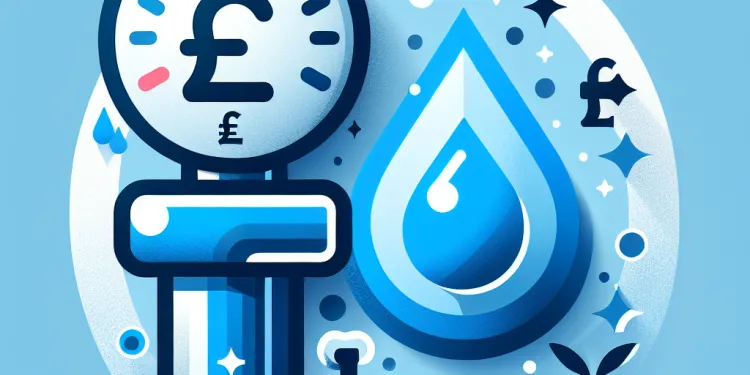
Which UK water companies are going to refund their customers for poor performance?
Relevance: 69%
-
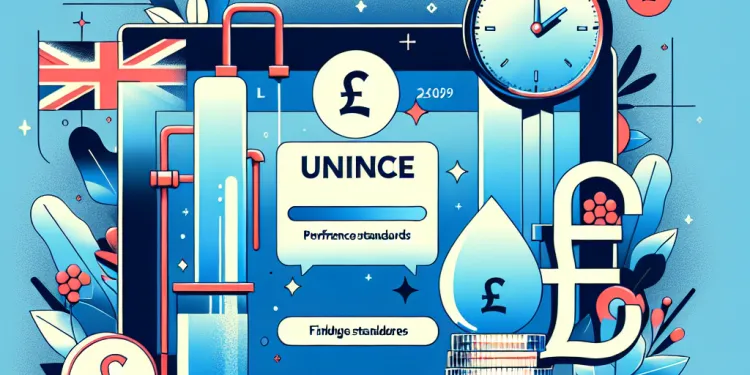
Where can customers find updates on their water company's performance standards?
Relevance: 66%
-

How will refunds affect investments towards improving water infrastructure?
Relevance: 66%
-

Which UK water companies are going to refund their customers?
Relevance: 64%
-

What role do water companies play in sewage pollution?
Relevance: 59%
-

Are some UK beaches rated better for water quality than others?
Relevance: 57%
-

Are there penalties for water companies besides issuing refunds?
Relevance: 56%
-

How many UK water companies are involved in the refund process?
Relevance: 55%
-

What can I do if the water company doesn’t respond to my claim?
Relevance: 53%
-

When will the refunds be issued by the UK water companies?
Relevance: 52%
-
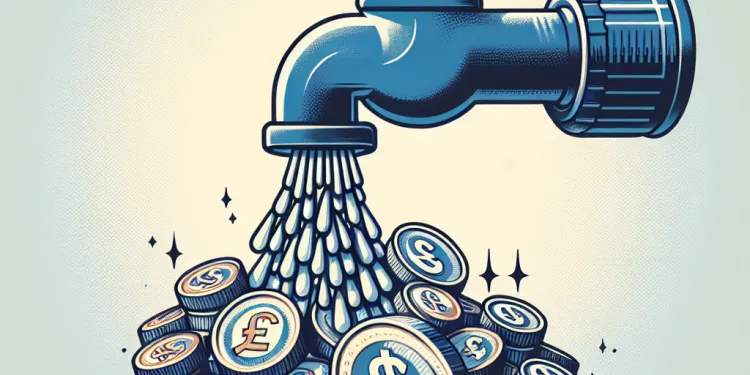
How much is being refunded in total by the UK water companies?
Relevance: 49%
-

What is the first step to claim money back from my water company?
Relevance: 48%
-

Are there legal guidelines for sewage discharge into UK waters?
Relevance: 47%
-

Can customers appeal or discuss the refund amount with their water company?
Relevance: 45%
-

Do these refunds mean water companies have increased their rates fraudulently?
Relevance: 45%
-

How can I claim money back from my water company?
Relevance: 43%
-
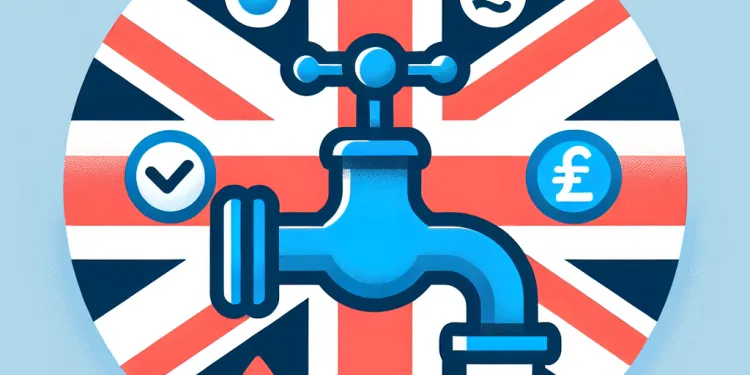
What criteria were used to determine the refunds for UK water companies?
Relevance: 41%
-

What agencies monitor and regulate sewage pollution in the UK?
Relevance: 39%
-

Is climate change affecting sewage pollution levels?
Relevance: 36%
-

What is the best way to hydrate during hot weather?
Relevance: 35%
-

What is a Combined Sewer Overflow (CSO)?
Relevance: 33%
-
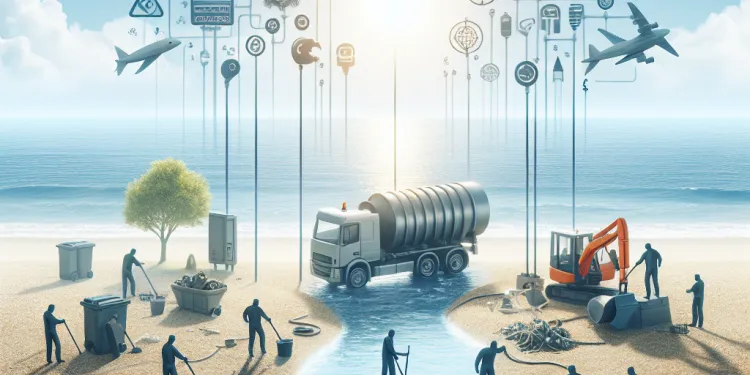
What is being done to address sewage pollution on UK beaches?
Relevance: 33%
-

Does water reflect UV rays, increasing the risk of sunburn?
Relevance: 30%
-

What causes sewage pollution on UK beaches?
Relevance: 29%
-

Is sewage a problem on UK beaches?
Relevance: 28%
-

How can I prevent mosquitoes from breeding near my home?
Relevance: 28%
-

How does sewage pollution affect public health?
Relevance: 27%
-

Has sewage pollution in the UK improved over recent years?
Relevance: 26%
-
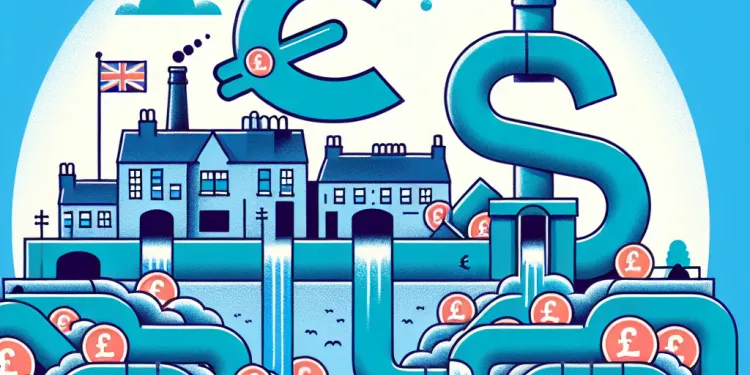
Which UK areas are most affected by sewage pollution?
Relevance: 26%
-

Is this the first time UK water companies are being ordered to refund customers for poor performance?
Relevance: 26%
-

How to prevent dehydration | NHS
Relevance: 23%
-

How to apply wet wraps
Relevance: 21%
-

Will all customers of these UK water companies receive refunds?
Relevance: 21%
-
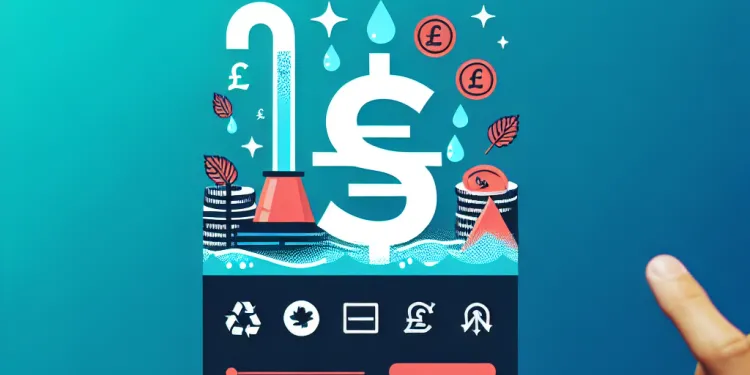
How can individuals help reduce sewage pollution?
Relevance: 21%
-

Problems swallowing pills: Pop bottle technique | NHS
Relevance: 20%
-

How can the public find out if a beach has sewage pollution?
Relevance: 19%
-

What is norovirus? (Diarrhoea and vomiting bug) | NHS
Relevance: 18%
Introduction
The management and improvement of water infrastructure is a pressing issue in the UK, where aging systems and growing populations exert increasing pressure on the existing frameworks. Investments in water infrastructure are crucial for ensuring a reliable and safe water supply, reducing leakage, and improving environmental conditions. However, the way refunds and rebates are applied can have significant implications for these investments.
Understanding Refunds in Water Services
Refunds in the water sector typically refer to rebates or credits given to consumers for various reasons, such as billing errors, compensation for service disruptions, or adjustments based on consumption patterns. These refunds are generally aimed at maintaining customer satisfaction and ensuring fairness in billing practices.
Impact on Investment in Infrastructure
The allocation of funds towards refunds can potentially reduce the financial resources available for investment in water infrastructure. Water companies rely heavily on revenue from customer billing to fund infrastructure projects, which include repairing leaks, upgrading treatment plants, and expanding service coverage. When substantial funds are redirected towards refunds, these companies might face budget constraints that could delay or reduce the scope of necessary projects.
Balancing Consumer Needs and Infrastructure Investment
While refunds play an essential role in customer relations and satisfaction, there needs to be a balance between addressing immediate consumer needs and long-term infrastructure goals. Consistent underinvestment in infrastructure due to excessive refunds can lead to deteriorating service quality, increased maintenance costs, and higher long-term expenses for both consumers and service providers.
Strategies to Mitigate Negative Impacts
To mitigate the negative impacts of refunds on investments, water companies and regulators could consider several strategies. One approach is implementing more accurate billing systems and proactive customer engagement to minimize billing errors that lead to refunds. Additionally, water companies can seek alternative funding mechanisms, such as government grants or public-private partnerships, to supplement their investment in infrastructure.
Regulatory Considerations
Regulators have a pivotal role in ensuring that refund practices do not excessively hinder the long-term goals of improving water infrastructure. Establishing guidelines that balance consumer protection with sustainable investment practices is crucial. Regulators can promote transparency in how refunds are managed and encourage investment in necessary infrastructure upgrades as a priority.
Conclusion
While refunds and rebates are necessary tools for maintaining customer trust and satisfaction, their impact on water infrastructure investment cannot be overlooked. A careful balance must be maintained to ensure that consumers are treated fairly without compromising the essential improvements needed in the water sector. Strategic planning and effective regulatory oversight can support this balance, securing a resilient and sustainable water infrastructure for the UK’s future.
Introduction
Fixing and improving the water system in the UK is important. Many water pipes and systems are old, and more people need water now. We need to spend money to make sure everyone has clean and safe water. Spending money also helps stop leaks and keeps the environment clean. But, giving money back to customers can affect how much is spent on fixing the water systems.
Understanding Refunds in Water Services
Refunds mean giving money back to customers. This can happen if there is a mistake in the water bill or if the water service is not good. Refunds help keep customers happy and make sure bills are fair.
Impact on Investment in Infrastructure
Giving money back to customers can mean less money for fixing and improving water systems. Water companies use the money from bills to fix leaks, improve cleaning plants, and make sure more people can get water. If too much money goes back to customers, there might not be enough left for important projects.
Balancing Consumer Needs and Infrastructure Investment
Refunds are important to keep customers happy, but we also need to fix the water systems. If too much money goes to refunds, the water service might get worse, and it could cost more to fix it later. It's important to find a balance so that both customers and water systems are taken care of.
Strategies to Mitigate Negative Impacts
Water companies can try different things to stop money problems. They can make sure bills are right, so fewer refunds are needed. Talking with customers can help fix issues early. Water companies can also look for extra money from the government or work with private partners to help pay for fixing the water systems.
Regulatory Considerations
Regulators, the ones who make rules, need to make sure refunds do not stop water system improvements. They can make rules to keep refunds fair while also making sure money is spent on fixing and improving water systems. They should also tell people clearly how refunds are managed and make improving water systems a priority.
Conclusion
Refunds are important to keep customers happy, but we must also fix and improve water systems. We need to find a balance so that people are treated fairly and water systems stay strong and safe. Planning well and having good rules can help make sure the UK has good water systems in the future.
Frequently Asked Questions
What is the primary source of funding for water infrastructure projects?
Water infrastructure projects are typically funded by a combination of government grants, loans, and sometimes private investments.
How do refunds influence water infrastructure funding?
Refunds can reduce the available budget for current or future water infrastructure projects, potentially delaying or scaling back improvements.
Why might a refund be issued in the context of water infrastructure investments?
Refunds may be issued due to overpayments, changes in project scope, underperformance by contractors, or regulatory decisions.
Can refunds from water infrastructure projects be reinvested into other projects?
Yes, funds that are refunded can often be redirected to other projects, but this depends on the funding source's rules and regulations.
Do refunds impact public trust in water infrastructure projects?
Refunds might affect public trust, especially if they result from mismanagement or lead to project delays.
Are refunds common in water infrastructure projects?
While not extremely common, refunds can occur due to various reasons such as budget adjustments and project cancellations.
How are refunds typically processed in government-funded projects?
Refunds in government-funded projects typically require formal approval and can involve reallocating funds according to government protocols.
Can refunds benefit future water infrastructure investments?
Indirectly, yes. If refunds highlight inefficiencies, they can lead to improved project planning and financial management in the future.
Would a refund affect ongoing water infrastructure projects?
If the refund results in reduced funds, it could potentially delay or alter the scope of ongoing projects.
Who decides how refunded money is used in water projects?
Decisions are typically made by funding agencies, government departments, or the project management team, depending on the funding source.
Are there instances where refunds improve project outcomes?
Yes, refunds might lead to a reassessment and better realignment of project goals with actual needs and funding capacity.
Do stakeholders get consulted regarding refunds in projects?
It depends on the project structure. Major stakeholders might be consulted, especially if the refunds impact project outcomes.
How can proper planning reduce the risk of needing refunds?
Proper planning, accurate budgeting, and effective project management practices can reduce the likelihood of needing refunds.
What role does risk management play in handling refunds?
Risk management helps identify potential causes for refunds early on, allowing for mitigative strategies to be put in place.
Could a refund indicate a problem with the project's funding model?
Yes, frequent refunds could indicate that the funding model is not aligned with project needs or spending patterns.
How does the refund process affect project timelines?
If not managed effectively, the refund process could cause delays in project timelines due to financial re-evaluations.
Can refunds affect the quality of water infrastructure solutions?
Yes, if refunds lead to reduced funding, they could impact the quality and comprehensiveness of the final infrastructure solutions.
Do private investors in water infrastructure projects receive refunds?
Private investors may receive refunds depending on their contract terms, investment type, and project financial outcomes.
Are there legal frameworks governing refunds for water infrastructure investments?
Yes, there are often legal and regulatory frameworks that govern how refunds must be processed and allocated.
What measures can be put in place to minimize the need for refunds?
Thorough project scoping, realistic budgeting, stakeholder engagement, and effective financial oversight can minimize the need for refunds.
Where does the money come from to build water systems?
Money for water projects usually comes from the government, banks, and sometimes from private companies.
How do refunds affect money for water systems?
Refunds mean giving money back. This can make it harder to pay for new water projects. These projects might have to wait or be made smaller because there is less money to use.
Why would you get money back from water projects?
You might get your money back if something changes with the water projects. This could happen if:
- The project costs less than expected.
- The project does not happen.
- The project is delayed.
Sometimes when we invest in water services, we can get refunds for different reasons. Let's look at a few examples together.
If you find reading hard, you might try using a ruler or your finger to help keep your place. You could also try reading with a helper or listening to the text read aloud. Apps that read text can be useful too.
You might get your money back for a few reasons:
- You paid too much by mistake.
- The project or plan changed.
- The workers did not do a good job.
- Rules say you should get a refund.
Tools like text-to-speech programs can help you understand better. Using pictures or simple charts can also make things clearer.
Can money from water projects be used for new projects?
Sometimes, when water projects cost less, there is extra money.
This extra money can be used for other projects.
People can use helpful tools like pictures or videos to understand this.
Yes, sometimes money that is given back can be used for other projects. But it depends on the rules from where the money came from.
Do refunds change how people feel about water projects?
Giving money back to people might make them lose trust. This can happen if the money was not used well or if it causes things to be late.
Do water projects often give money back?
Refunds can happen, but they are not very common. Refunds might happen if there is a change in money plans or if a project is stopped.
How do you usually get money back in government-paid projects?
Getting money back in projects paid for by the government usually needs special permission. It can also mean moving the money around in a way that follows government rules.
Can getting money back help with future water projects?
Yes, in a way. If a lot of refunds show us that things are not working well, it can help us get better at planning and using money in the future.
Here are some tools and tips that might help:
- Use a simple checklist to plan better.
- Write down where the money goes to keep track of it.
- Ask for help if you need it.
Will getting money back stop water work projects?
If you get money back, it means there is less money for projects. This can make projects take longer or change how big they can be.
Here are some tools you can use:
- Use a calendar to plan time better.
- Use a calculator to keep track of money.
Who decides how money is used for water projects?
Some people decide how to use the money we get back for water projects. These people are called "decision-makers."
They think about the best ways to make clean water for everyone.
Using helpful tools like pictures or videos can make understanding easier!
Different groups make decisions depending on who gives the money. These groups could be people who give money, government workers, or the team running the project.
To make this easier to understand, you can:
- Use pictures to show who makes decisions.
- Talk about it with a friend or helper.
- Use a dictionary or ask someone to explain hard words.
Can giving money back help make a project better?
When a project does not go as planned, sometimes giving back money can help fix things. This is called a refund.
Here are some ways refunds can be helpful:
- Make people happier by showing you care.
- Help solve problems and improve the project.
- Encourage people to trust the project in the future.
To understand this better, you can:
- Ask a friend or family for help.
- Use pictures to help explain the idea.
- Watch videos that talk about refunds and projects.
Yes, getting money back can help us look at our project goals again and make sure they match what we really need and how much money we have.
Do we ask for help about refunds in projects?
When working on a project, sometimes we need to give money back. It's important to talk to the right people about this.
Here is how you can do it:
- Find out who cares about the project. These are called "stakeholders." They can be anyone who is interested in the project.
- Ask them what they think about giving refunds.
- Make sure everyone agrees on what to do.
Here are some tools to help:
- Use pictures or charts to show ideas. This makes it easier to understand.
- Write down important things so you don't forget.
- Talk clearly and ask questions if you don't understand.
It depends on how the project is set up. Important people might be asked, especially if the refunds change how the project works out.
How does good planning help stop refunds?
Planning well can help you avoid mistakes. This means fewer people will want their money back. Here are some ways to plan better:
- Make sure you understand what people want.
- Check your work before selling it.
- Communicate clearly with customers.
- Use lists to keep track of tasks.
- Ask for feedback to improve.
Support tools can be:
- Checklists to ensure nothing is missed.
- Calendars to plan your time.
- Simple language when talking or writing.
Good planning, careful budgeting, and smart project management can help you avoid needing refunds.
How does risk management help with refunds?
Risk management helps us handle refunds safely. It makes sure everything is done right, so there are no mistakes. This keeps everyone happy and safe.
Helpful tools like checklists can ensure steps are not missed. Asking questions can help people understand better.
Risk management helps find problems that might cause refunds early. This way, we can make plans to stop them.
Does giving money back mean there's a problem with how the project gets money?
Getting money back a lot might mean the way the money is given doesn't match what the project needs or how it is used.
How does getting money back change the project schedule?
When you ask for a refund, it can change how long the project takes.
Here is how it works:
- If you wait for a refund, the project might take longer.
- It's important to check money details carefully.
- Calculator tools can help with dates and plans.
Try using a calendar or planner to keep track of project steps.
If we don't handle it well, giving money back could slow down our project. We might need to check our budget again.
Do refunds change how good water systems are?
Yes, if there is less money, it might make the final projects not as good or not complete.
Do people who put money into water projects get their money back?
Private investors might get money back. It depends on what their contract says, the type of investment, and how well the project does with money.
If you want to understand this more, you can:
- Ask someone you trust to explain it to you.
- Use pictures or drawings to help you understand.
- Break down the sentence into smaller parts.
Are there laws about getting money back for water projects?
If you spend money to help make water systems better, can you get some of your money back? There are rules and laws about this.
If you need help to understand, you can use pictures or talk to someone who knows about these rules.
Yes, there are rules about how to give money back to customers. These rules say how refunds should be done.
How can we stop giving so many refunds?
Here are some simple ideas to help:
- Make sure the product is good quality before selling.
- Tell people clearly what your product does.
- Give instructions on how to use the product.
- Have good pictures and descriptions online.
- Help customers quickly if they have questions or problems.
These steps can help make people happy with what they buy, so they might not want a refund.
Make a plan for the project, set a budget that makes sense, talk to everyone involved, and keep a close eye on the money. This helps so we don’t have to give money back.
Useful Links
- Ergsy carfully checks the information in the videos we provide here.
- Videos shown by Youtube after a video has completed, have NOT been reviewed by ERGSY.
- To view, click the arrow in centre of video.
- Most of the videos you find here will have subtitles and/or closed captions available.
- You may need to turn these on, and choose your preferred language.
- Go to the video you'd like to watch.
- If closed captions (CC) are available, settings will be visible on the bottom right of the video player.
- To turn on Captions, click settings .
- To turn off Captions, click settings again.
More Items From Ergsy search
-

Who regulates the performance and compliance of UK water companies?
Relevance: 100%
-

What is the role of a water regulator in my claim?
Relevance: 95%
-

Which body is responsible for enforcing refunds by UK water companies?
Relevance: 69%
-

Which UK water companies are going to refund their customers for poor performance?
Relevance: 69%
-

Where can customers find updates on their water company's performance standards?
Relevance: 66%
-

How will refunds affect investments towards improving water infrastructure?
Relevance: 66%
-

Which UK water companies are going to refund their customers?
Relevance: 64%
-

What role do water companies play in sewage pollution?
Relevance: 59%
-

Are some UK beaches rated better for water quality than others?
Relevance: 57%
-

Are there penalties for water companies besides issuing refunds?
Relevance: 56%
-

How many UK water companies are involved in the refund process?
Relevance: 55%
-

What can I do if the water company doesn’t respond to my claim?
Relevance: 53%
-

When will the refunds be issued by the UK water companies?
Relevance: 52%
-

How much is being refunded in total by the UK water companies?
Relevance: 49%
-

What is the first step to claim money back from my water company?
Relevance: 48%
-

Are there legal guidelines for sewage discharge into UK waters?
Relevance: 47%
-

Can customers appeal or discuss the refund amount with their water company?
Relevance: 45%
-

Do these refunds mean water companies have increased their rates fraudulently?
Relevance: 45%
-

How can I claim money back from my water company?
Relevance: 43%
-

What criteria were used to determine the refunds for UK water companies?
Relevance: 41%
-

What agencies monitor and regulate sewage pollution in the UK?
Relevance: 39%
-

Is climate change affecting sewage pollution levels?
Relevance: 36%
-

What is the best way to hydrate during hot weather?
Relevance: 35%
-

What is a Combined Sewer Overflow (CSO)?
Relevance: 33%
-

What is being done to address sewage pollution on UK beaches?
Relevance: 33%
-

Does water reflect UV rays, increasing the risk of sunburn?
Relevance: 30%
-

What causes sewage pollution on UK beaches?
Relevance: 29%
-

Is sewage a problem on UK beaches?
Relevance: 28%
-

How can I prevent mosquitoes from breeding near my home?
Relevance: 28%
-

How does sewage pollution affect public health?
Relevance: 27%
-

Has sewage pollution in the UK improved over recent years?
Relevance: 26%
-

Which UK areas are most affected by sewage pollution?
Relevance: 26%
-

Is this the first time UK water companies are being ordered to refund customers for poor performance?
Relevance: 26%
-

How to prevent dehydration | NHS
Relevance: 23%
-

How to apply wet wraps
Relevance: 21%
-

Will all customers of these UK water companies receive refunds?
Relevance: 21%
-

How can individuals help reduce sewage pollution?
Relevance: 21%
-

Problems swallowing pills: Pop bottle technique | NHS
Relevance: 20%
-

How can the public find out if a beach has sewage pollution?
Relevance: 19%
-

What is norovirus? (Diarrhoea and vomiting bug) | NHS
Relevance: 18%